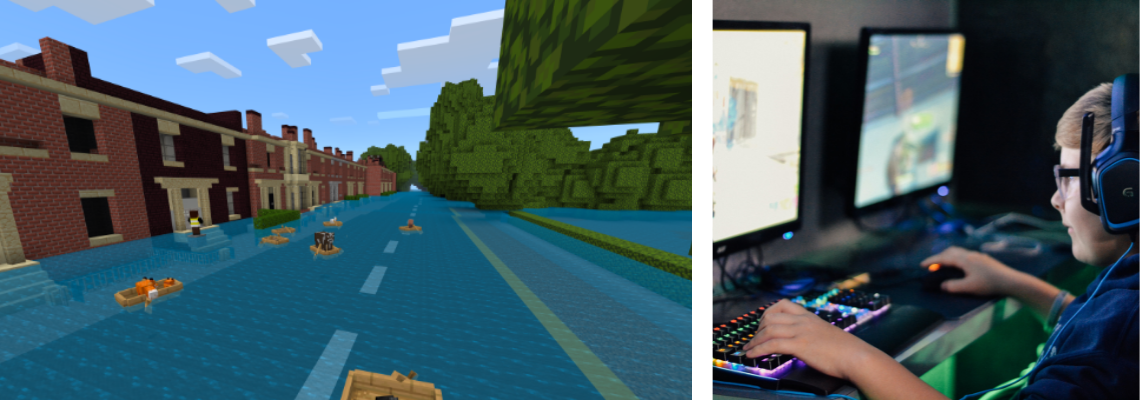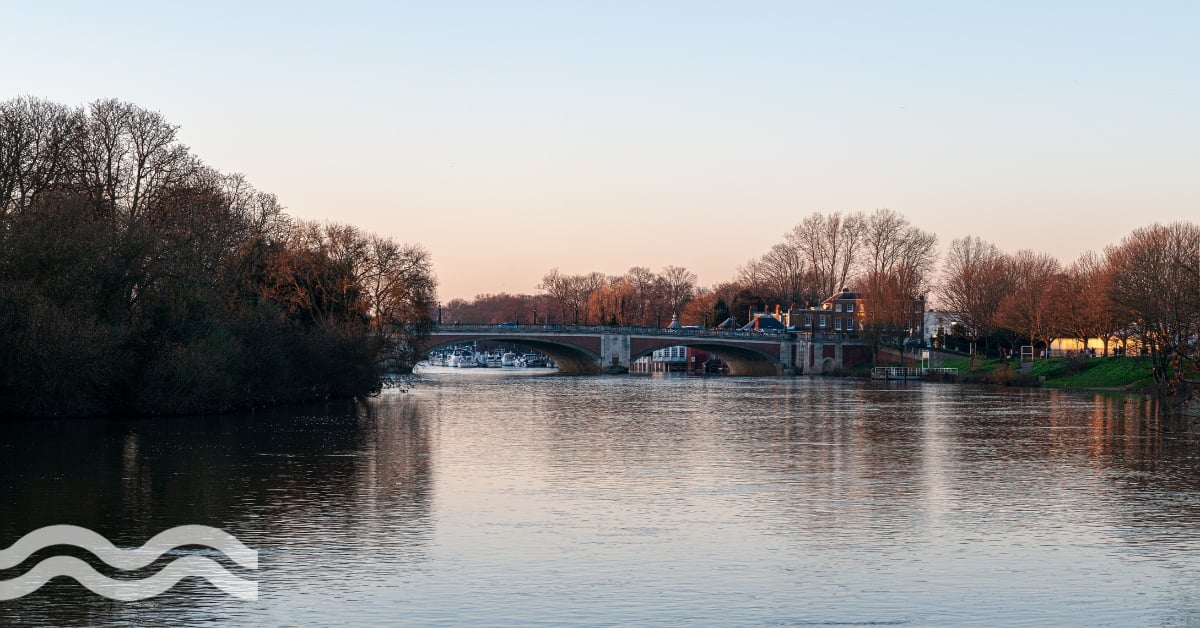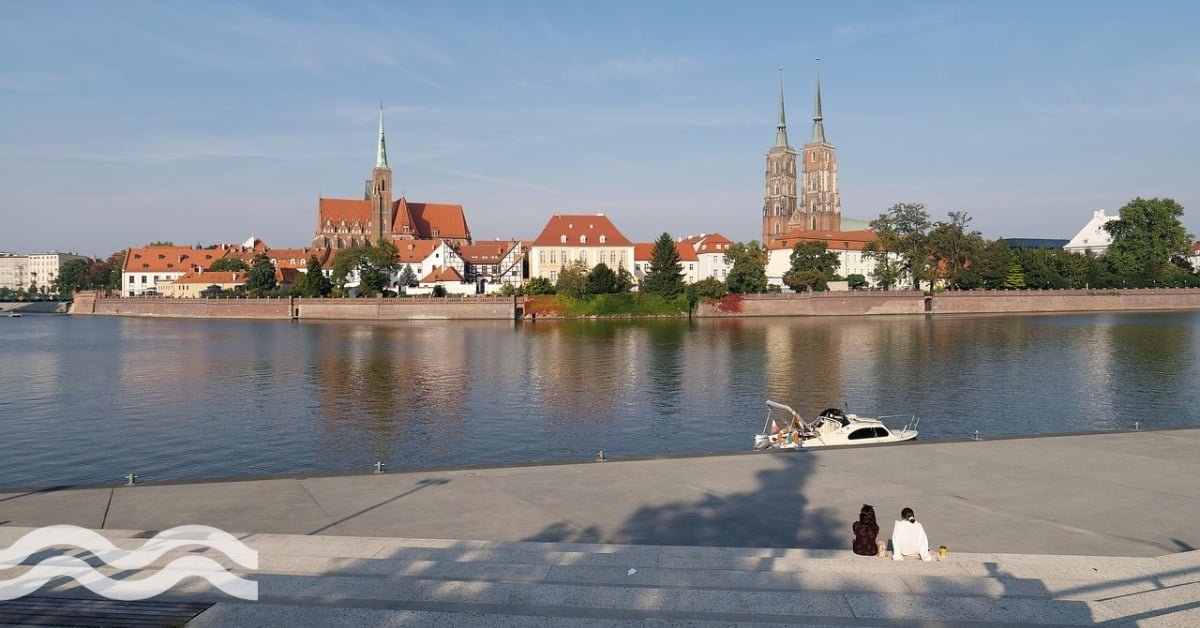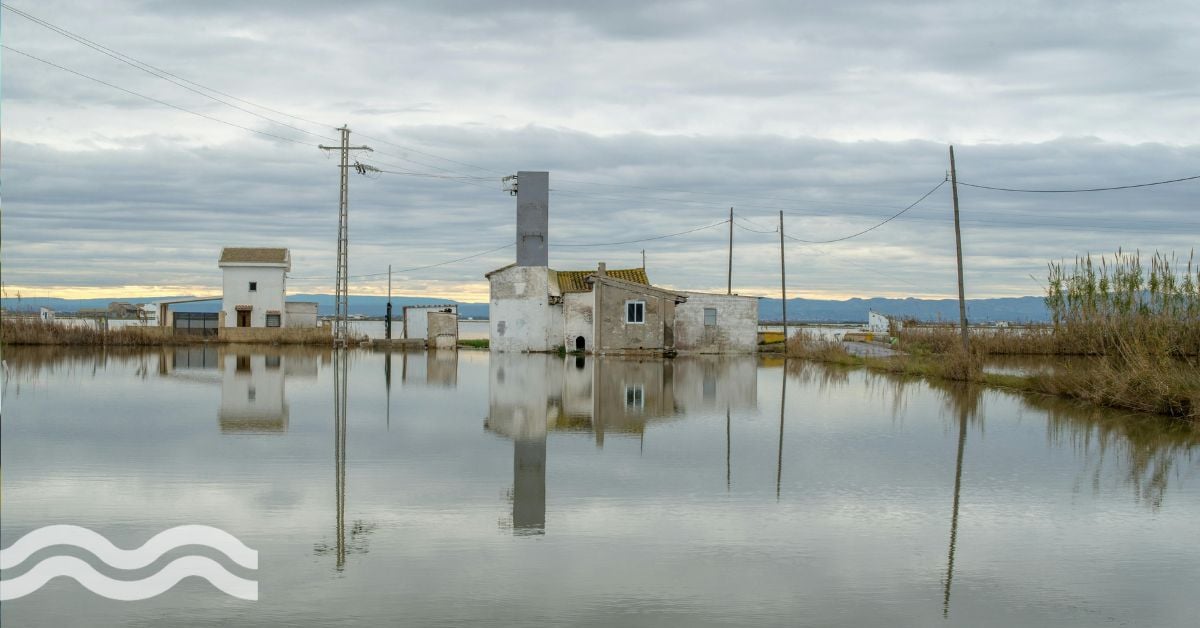How Minecraft is helping to educate young people on flooding

An updated version of Minecraft called Rivercraft is being used to educate young people on key areas of the Environment Agency’s work. Three games are themed around flood mitigation, climate change, and the local environment.
Educating through gaming
The UK Environment Agency in collaboration with Microsoft has launched a new mode for Minecraft: Education Edition called 'Rivercraft'.
The new mode is designed to instruct students about the impact of climate-change-induced flooding on local communities.
Based on the £54.7 million flood risk management scheme in Preston and South Ribble, the in-game Preston world is the first activity of its kind that uses Artificial Intelligence (AI) to map a region and convert it into an interactive Minecraft map.
"The game provides an opportunity not just to get to know the flooding scheme in Preston and South Ribble, but also understand the real-world impact in a safe and fun way."
“This is an amazing opportunity for students and a project we are proud to be a part of,” said Andy Brown, flood risk manager for the Environment Agency.
"Not only will young people learn about a major flooding scheme in the UK, but they will also discover more about climate change, the environment, flooding and the types of roles available for careers in science, technology, engineering and mathematics."
The Environment Agency and Microsoft will collaborate with experts in youth engagement, and Block Builders to draw users into three themed games.
Gamification starting to play a key role
The virtual Preston world will encourage young people to learn about flood risk management, climate change, local human geography, engineering, and the environment.
The three games modes include:
- Game 1 – Managing Flooding. This game will focus on building the Preston and South Ribble flood defences. The player will be tasked with constructing several types of flood prevention measures including natural flood management, walls, and embankments as well as flood storage areas and flood gates. Players will learn about the pros and cons of each approach and their suitability within local communities.
- Game 2 – Flood Prevention. This game will explore how individual actions can alleviate climate change and how understanding flood risk can reduce the damage to people and property.
- Game 3 - Our Local Environment. This game will begin on the riverbank where the player will be tasked with conducting an ecological survey using their digital workbook and camera. The aim of this game will be for the surveyors to spot and record wildlife species such as water voles and otters.
Justin Edwards, director of learning programmes, Minecraft, said: "The game provides an opportunity not just to get to know the flooding scheme in Preston and South Ribble, but also understand the real-world impact in a safe and fun way."
The games will be available globally and in multiple languages to be used in educational and home environments across the world within Minecraft: Education Edition. This established educational tool is used by millions of educators and students in 112 countries, with hundreds of free lessons and curricula, teacher training, and learning programmes.
Gamification starting to play a key role
Gamification is gaining momentum in the water sector, with a recent notable three-year project using serious gaming to connect public and private stakeholders (Aqua Ludens in the Netherlands).
Serious gaming is being used to help share insights into the importance of water, freshwater availability, and economic feasibility.
The partners include the KWR Water Research Institute, WLN (Water Laboratory North), Exeter University (UK) and NHL Stenden University of Applied Science Leeuwarden.
After the three-year project in the Groningen province, the partners intend to take the learnings further afield in the Netherlands and internationally.
In the long term, a solution is being developed which can be applied to other areas in the Netherlands and beyond the country’s borders.
Getting serious
While gaming has traditionally been created for entertainment purposes, serious gaming has been developed with the primary goal of education and learning.
By creating a “safe environment” with structure, rules and goals, players are given the freedom to make decisions that will not impact real-world assets. In short: serious gaming can bring learning into practice.
Water companies are increasingly using serious games to help in their strategic future planning and strategies, helping to link decision support systems, interactive visualisations, and data science.
One example is South-West Water. The English utility has developed and now uses a serious game to help plan decisions as part of its business plan for the next five years.
Similarly, at the Innovation Forum in Aquatech Amsterdam 2021, serious gaming gave visitors a chance to become Mayor for the day and make decisions to help a community solve a water crisis.
What started out as a different approach to learning, gamification and serious gaming is looking to become an essential tool for engaging with people about current water challenges.
Share your water technology stories with us
Do you have an innovation, research results or an other interesting topic you would like to share with the international water technology industry? The Aquatech website and social media channels are a great platform to showcase your stories!
Please contact our Sr Brand Marketing Manager Annelie Koomen.
Are you an Aquatech exhibitor?
Make sure you add your latest press releases to your Company Profile in the Exhibitor Portal for free exposure.


